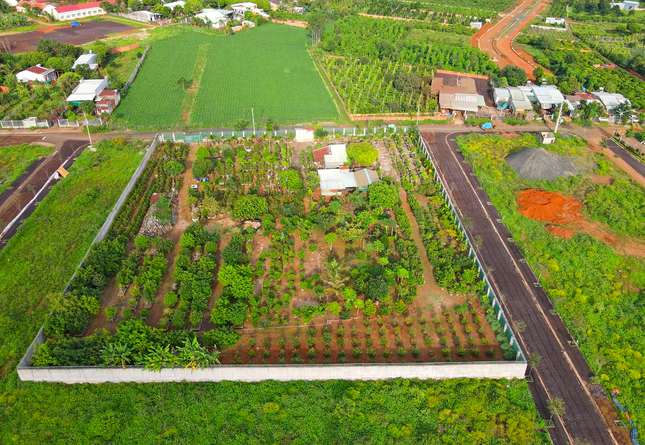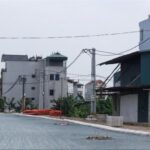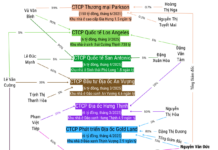The Government Inspectorate has issued Conclusion No. 263 (dated July 19), regarding the inspection of the People’s Committee of Gia Lai province’s responsibilities in managing and utilizing land with origins from agricultural and forestry farms, as well as sand, soil, and gravel extraction activities, and investment management in construction projects within the province.
Conclusion No. 263 specifically points out numerous violations within Gia Lai province, with a notable focus on land allocation, leasing, and purpose conversion during the 2016-2020 period.
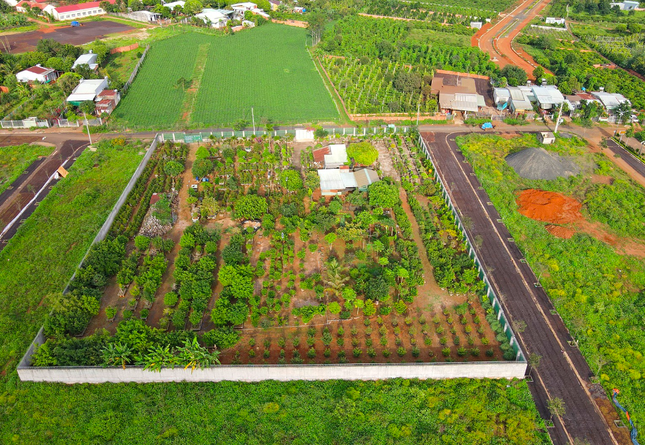
Master Plan for the Administrative Center and Eco-Urban Area in the East of Chư Sê Town
Land Allocation without Auctions
Upon inspecting the files of land allocations without auctions from 7 units, the inspecting authorities discovered numerous issues and violations. For instance, in 2016, the People’s Committee of Pleiku City allocated land without auctions for 121 cases in Thang Loi Ward. Of these, 44 cases were transferred after allocation, and the tax authorities determined the land value for tax calculation to be lower than the allocated land value by 934 million VND.
The inspection agency clarified that the allocation of land without auctions for these 121 cases was not in accordance with regulations, resulting in a loss of over 8.2 billion VND in state budget revenue. According to the explanation provided by the People’s Committee of Gia Lai province, the land allocation and support for the difference in land use fees between the 2016 and 2013 rates for 116 cooperative members (amounting to 8.2 billion VND) were approved by the Standing Committee of the Provincial Party Committee and the Provincial People’s Council to prevent collective petitions.
Furthermore, upon examining 57 cases of land allocation without auctions in 6 districts and towns, it was discovered that there were either no field land allocation minutes or allocation decisions; no documents evaluating the need for land use, no evaluation of land use conditions, or land leasing; and land allocation without auctions, which is a violation of Point g, Clause 1, Article 118 of the 2013 Land Law.
Additionally, when inspecting the procedures of 24 auctions for land use rights in 9 district-level units, it was found that there were no extracts of land maps or land measurements; auctions were organized before the issuance of auction decisions; notifications were not posted or were posted without meeting the requirements; and there was a lack of onsite land handover to auction winners, with specified deadlines for land use fee payments, among other issues.
A typical violation was in the auction of land use rights in 2019 for the Project of the Master Plan for the Administrative Center and Eco-Urban Area in the East of Chư Sê Town (in Chư Sê District). In this case, Ms. Ho Thi Hien won the auction for 107 land lots (worth 83 billion VND), Mr. Nguyen Xuan Anh won the auction for 44 land lots (worth 30.1 billion VND), and Mr. Le Viet Duc won the auction for 54 land lots (worth 39 billion VND). However, they all paid their auction winnings late, with delays ranging from 20 to 300 days.
According to the inspection, the People’s Committee of Chư Sê District at that time had lax management and lacked inspection and detection of violations. They did not cancel the auction results or collect the deposits (over 15.1 billion VND) to submit to the state budget. Instead, they allowed extensions for the payment of auction winnings, which was contrary to the auction regulations and plans. At the time of the inspection, many of the land lots had already been transferred to other households and individuals.
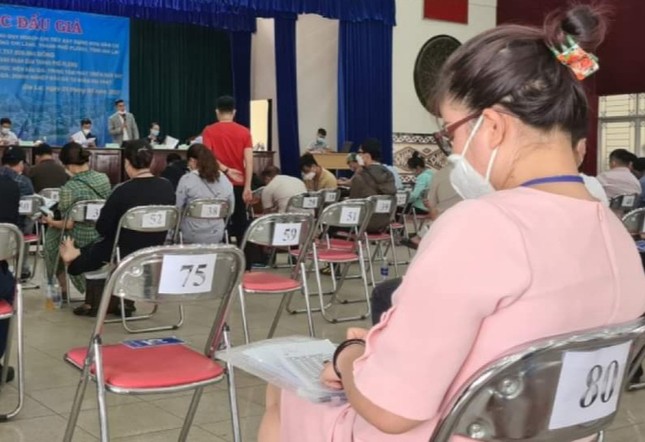
A land auction in Gia Lai
Allowing a Single Individual to Win Multiple Land Lots
Notably, according to reports from 9 out of 17 district-level units, in most land use right auction projects, there were cases of individuals winning auctions for hundreds of land lots. After winning the auctions, these individuals left the land uncultivated, causing a loss of aesthetics and a decline in infrastructure, resulting in a waste of land resources.
Specifically, in the 24 land use right auctions in 9 districts, towns, and cities of Gia Lai province, there were 373 land lots with abnormal signs. Among these, hundreds of land lots were won in auctions for hundreds of millions of VND, but the transfer prices were only from 10 million to under 50 million VND. In a particular case, a land lot won in an auction for 4.2 billion VND was transferred for only 50 million VND.
The act of declaring a transfer value lower than the auction-winning value indicates a potential lack of honesty in the declaration (the specialized agencies and tax authorities did not promptly advise and handle it within their competence), posing a risk of reducing state budget revenue. The total value of the 373 land lots won in auctions was 144 billion VND, but the total declared transfer value was only 46 billion VND, resulting in a potential loss of 98 billion VND.
Regarding this issue, according to the Government Inspectorate, the People’s Committee of Gia Lai province needs to direct the tax authorities and other agencies to review these 373 cases to verify the accuracy and honesty of the tax declaration files of the taxpayers to prevent tax losses. If there are any signs of criminal offenses, the case files should be transferred to the competent authorities for handling in accordance with the law.
When inspecting the change of land use purpose for households and individuals in 9 districts, cities, and towns, according to the reports of the inspected units, in 2018-2019, there were a total of 2,122 cases that did not meet the conditions for subdivision after changing the purpose from non-agricultural land to urban land. This was not in accordance with the regulations.
It is worth mentioning that the branches of the Land Registration Office in the districts, towns, and cities were slow to implement administrative procedures for issuing land use right certificates for 6,159 files, which is a violation of the regulations.
During the 2016-2020 period, the People’s Committee of Gia Lai province issued 308 decisions on land allocation, leasing, and purpose conversion, covering an area of 5,752 hectares. Through inspections of 11 project dossiers and the management and use of land before, during, and after the equitization of 3 companies, the inspecting authorities discovered violations of the Land Law and investment laws. Specifically, there were issues with the implementation of procedures, land handover on-site, leasing land for projects that were not in line with planning and land use plans, issuance of temporary land allocation decisions beyond authority, failure to collect 20% of the land value that the investor must contribute to the state for social housing investment, and failure to withdraw invested capital and terminate projects that were behind schedule, among others.
Ensuring Effective Implementation of the Land Law 2024
According to Deputy Minister of Natural Resources and Environment, Le Minh Ngan, the workload for preparing the necessary content to ensure the effective enforcement of the Land Law 2024 from January 1, 2025 is significant, as it requires the completion of 9 Decrees, 6 Circulars, 1 Prime Minister’s Decision, and 18 detailed local provisions.
Over 19 thousand households in Hanoi still awaiting allocation of service land
In recent times, the city of Hanoi has allocated land to 36,557 households. However, there are still over 19,000 households who have not yet been allocated service land, with a total area of 112.19 hectares.

